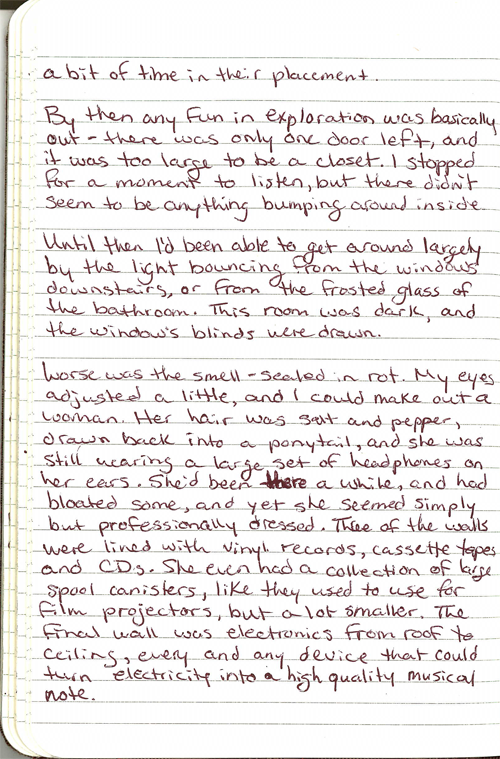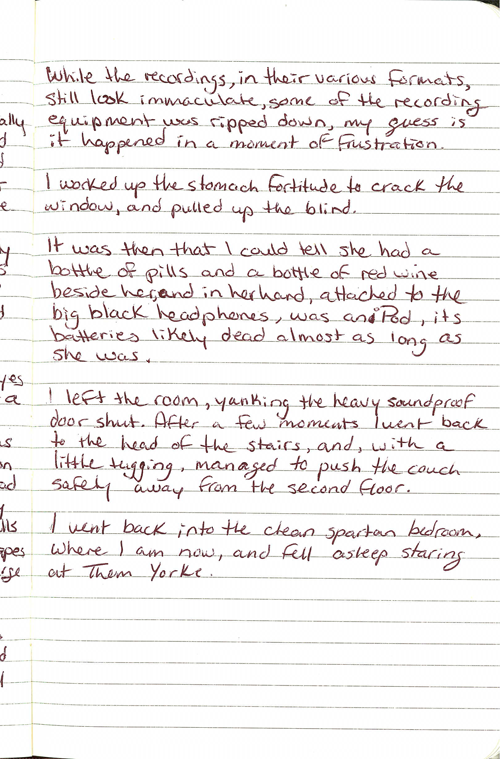Flash Pulp 088 – The Elg Herra, Part 1 of 6
Welcome to Flash Pulp, Episode Eighty-Eight.
![]() Tonight we present The Elg Herra: A Blackhall Tale, Part 1 of 6
Tonight we present The Elg Herra: A Blackhall Tale, Part 1 of 6
(Part 1 – Part 2 – Part 3 – Part 4 – Part 5 – Part 6)
[audio:http://traffic.libsyn.com/skinner/FlashPulp088.mp3]
Download MP3
(RSS / iTunes)
This week’s episodes are brought to you by Mr Blog’s Tepid Ride
The antidote for pop culture overload.
Find it at http://bmj2k.wordpress.com
Flash Pulp is an experiment in broadcasting fresh pulp stories in the modern age – three to ten minutes of fiction brought to you Monday, Wednesday and Friday evenings.
Tonight we once again return to the primeval forests with frontiersman and student of the occult, Thomas Blackhall, as he finds himself in unexpected company.
Flash Pulp 088 – The Elg Herra, Part 1 of 6
Written by J.R.D. Skinner
Art and Narration by Opopanax
and Audio produced by Jessica May
When he’d arrived in the trade fort, he’d had little interest in the Pastor’s invitation to sup, but Blackhall was now beginning to take some satisfaction in the polite reply he’d felt obligated to make.
There were five gathered around the table – the pastor, a voyageur who referred to himself simply as Marco, a Mr. and Mrs. Bijl, and the frontiersman himself.
Mr. Aalbert Bijl was a quiet man, with an awkward smile and a tendency towards dampness at the collar, but it was Mrs. Bijl whom Blackhall had taken an interest in.
Marco was busy completing an ill considered story as Thomas mentally attempted to formulate his questions into polite conversation and not naked interrogation.
“Tabernac, poor guy didn’t know what hit him. He somehow managed to make it home despite the whisky, but he must have fallen asleep on the floor before he got a fire going. They found him the next day, half way to the wood pile. He’d pissed himself – pardon prêtre – while curled up in a ball on the floor, and his legs had frozen to his body.” The Frenchman smiled, taking a long sip of the Pastor’s wine. “You could see the yellow ice crystals on the floor of the shack, and a trail behind him where he’d pulled himself along.”
Aalbert kept his eyes locked on his food, and the Pastor seemed to have had his gift for oration temporarily dislodged – it was Ida, Mrs. Bijl, who attempted to calm the impropriety of the situation.
“To my people, when a man or woman dies in great discomfort, we enact the funeral rites in direct opposition to their terror; this friend of yours who froze in the night would likely be sent off in a great pyre. My, uh, uncle, he took too much drink as well, and fell into a fast moving river while attempting to retrieve his dinner. We laid him upon the great racks of the smoke room and dried him as if a large piece of jerky. Then we roped him to the roof of the longhouse to feed the birds – it was a joyful outcome, as Uncle Myter often dreamed of flying.”
Blackhall found his opportunity to interject.
“I take it you were born in this land, but you do not seem to have the aspect of any of the people of the longhouse whom I’ve encountered before. Is Ida your true name, or a name taken after your marriage?”
The woman’s eyes were blue, and her hair a sandy brown that hung at equal lengths on either side of her face, cut to follow the edges of her sharp jawline. There was an elegance about her countenance that seemed echoed in her assured movements, despite the fact that she sat a head taller than her husband.
The silent Mr. Bijl finally looked up from his little-touched plate. His wife was quick to answer.
“My name has always been Ida – my people do not have the custom of a second name as my husband has introduced to me, nor am I of the people of the…”
Mr Bijl threw down his napkin and abruptly pushed back his chair.
“Are you quite all right, sir?” The Pastor asked.
“All right!? How might I ever be all right with such a woman as this telling constant tales of her barbaric peoples? I was told I was marrying a princess! Princess! Fah – she has the mouth of a war-camp slattern. Not only that, but I have not slept in days! Her nocturnal wanderings are of constant disruption. My spirit aches for an uninterrupted slumber.”
“Nocturnal wanderings?” the voyageur asked from behind his cup.
“Each night I wake to find her stumbling about the room, or worse, her viking frame hulking over my night-bed, as if approaching doom!”
“Have you tried Valerian? Hard to find here, I suppose, what of Passion Flower?” Blackhall asked the ranting man’s wife.
“I have tried many cures, but none have worked. In my dreams there is a tapping, as my father often maintained as he sat by the iron fire and cast his thoughts into the flame. I can see his shadow even now, his walking stick beating a gentle rhythm, and in my sleep, I think I am searching him out. I mean poor Aalbert no harm.”
The Dutchman stood, a hooked hand carrying his wife to her feet as well.
“We make our apologies, but must now depart,” he told the gathered. The pastor moved to retrieve their coats.
The voyageur, now quite drunk on the Pastor’s hospitality, caught Blackhall’s eye.
“I have met her people, although only once. The Moose Lords of the Northern Reaches – they live far to the west. The Dutchman must have been a trailblazer indeed to have met their likes, but such a life is not always easy on a man’s disposition.”
The trader punctuated his statement with another long draught of wine.
* * *
After the sudden departure, Thomas had allowed himself more than his usual allotment of grapes. As he moved towards the lodgings he’d taken with the old man all in the fort knew as the Widower Dunstable, he found the heat of the drink a brace against the chill of the fall air.
He briefly considered extending his stroll to enjoy the night sky, but a rattling gust of leaves that blew across the lane forced him to draw tight his coat and reconsider. Marco’s dinner tale also briefly crossed his mind.
Within moments he found himself at the rear access to the small room; in truth not much more than an extremely well built rear porch that the gray fellow now had little use for. The interior was warm, and he was quick to strip off his greatcoat and hat in the dark.
Manipulating the choke of the small lamp the house master had left him, the shadows retreated to the deepest corners of the room.
Standing at its center, in a long fur cloak, was the princess, Ida.
Flash Pulp is presented by http://skinner.fm. The audio and text formats of Flash Pulp are released under the Canadian Creative Commons Attribution-Noncommercial 2.5 License.






